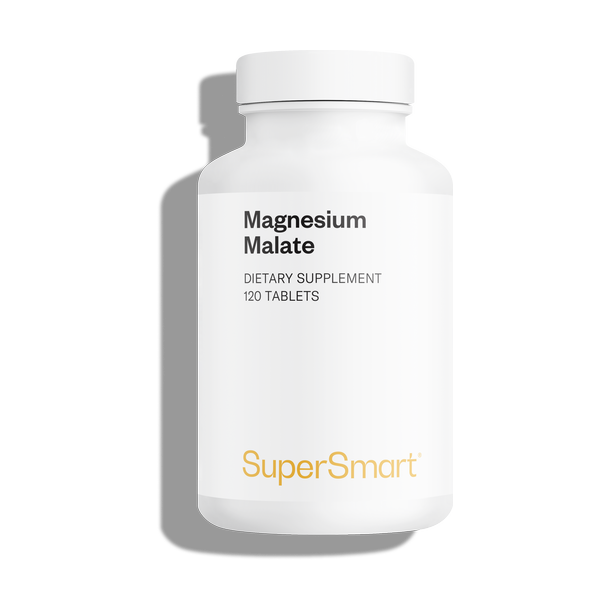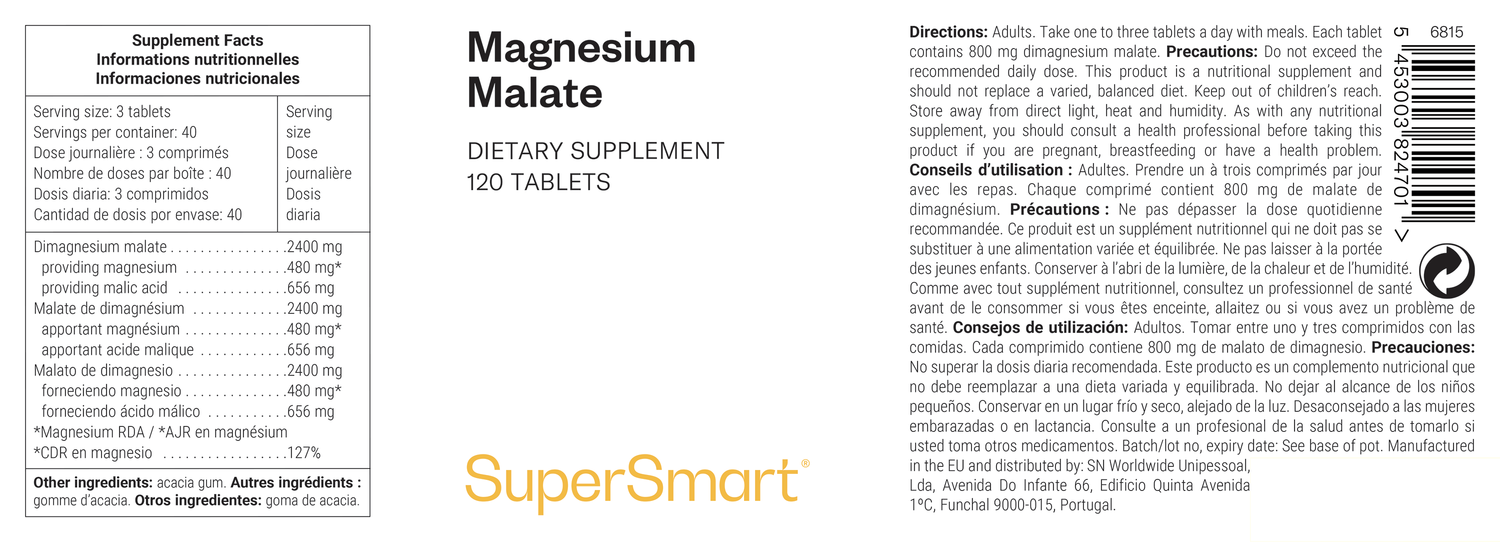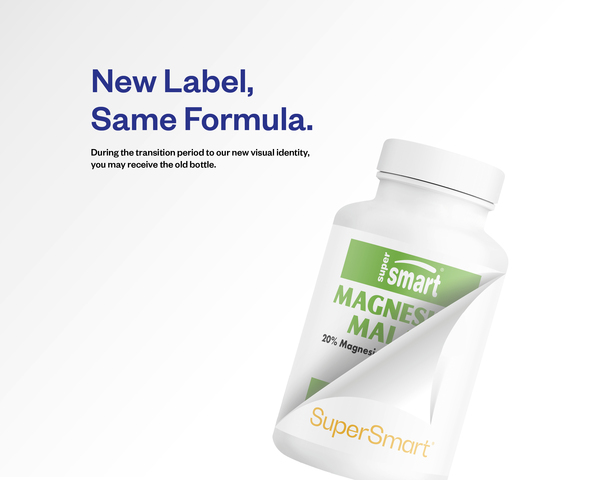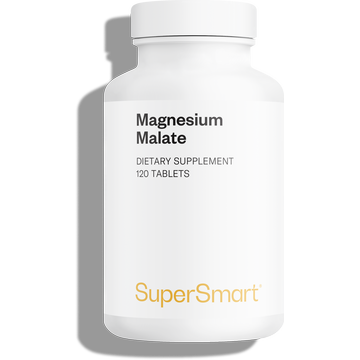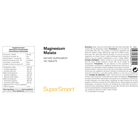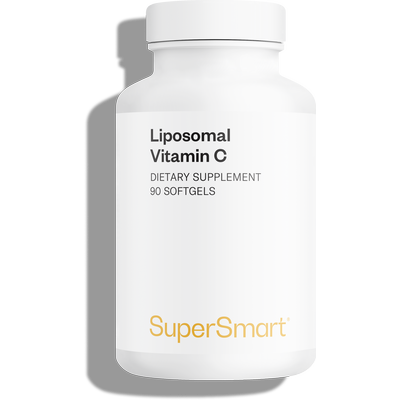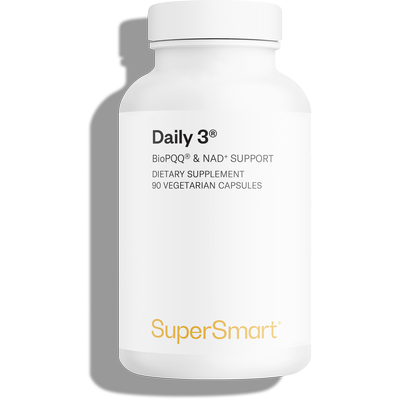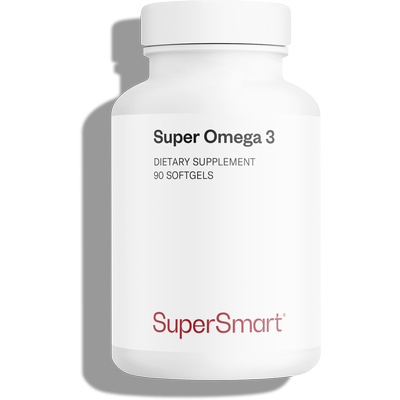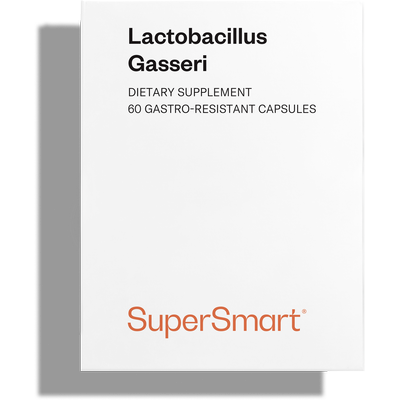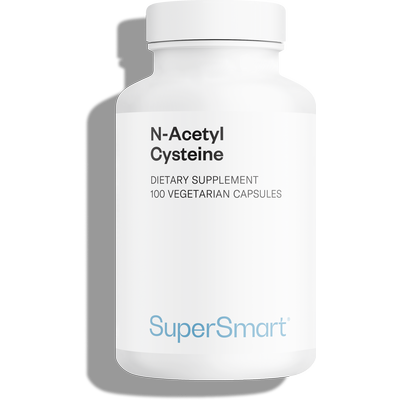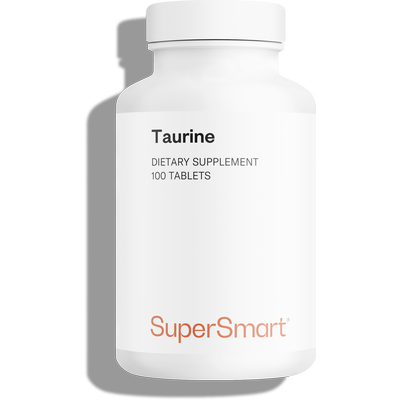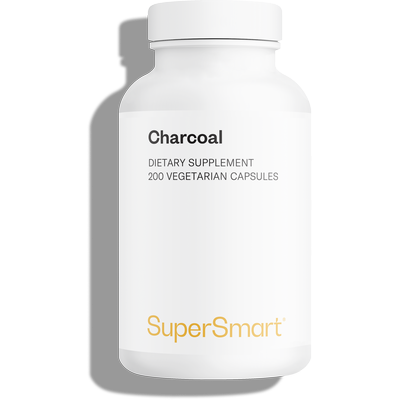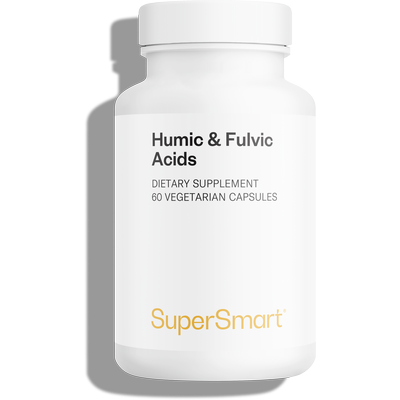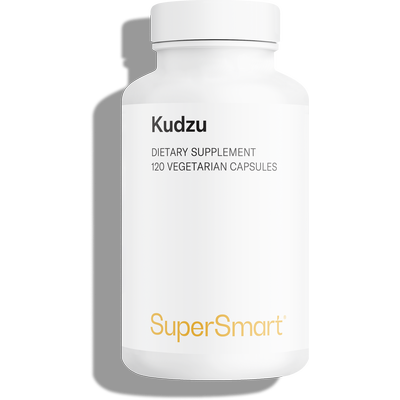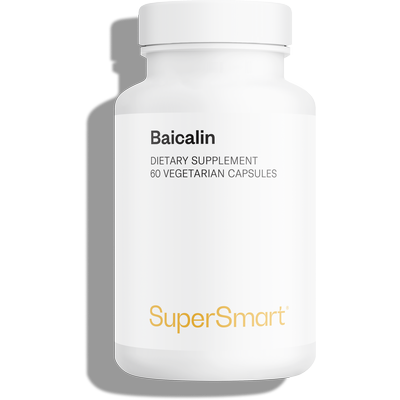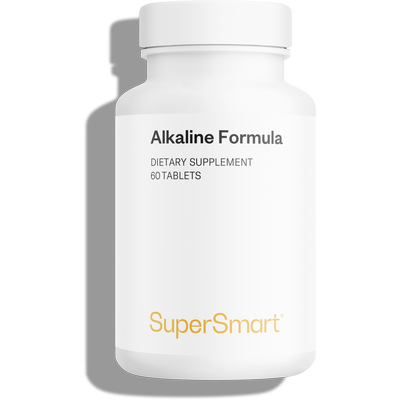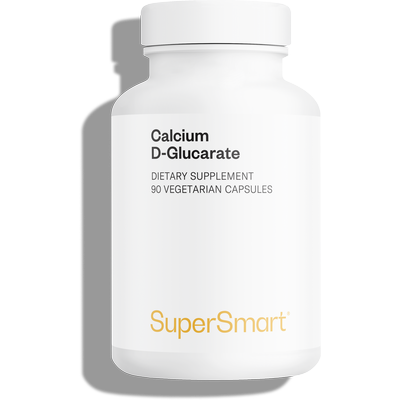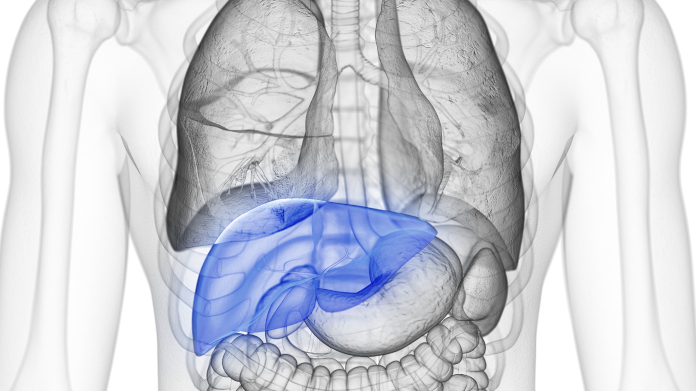Complete your selection
Magnesium malate is a magnesium supplement offering both excellent bioavailability and solubility.
These two factors make it a fast and effective way of increasing the body’s magnesium levels without producing any unwelcome side-effects (unlike other forms of magnesium).
What benefits can you expect from supplementing with Magnesium malate?
Magnesium malate is recommended for anyone lacking in magnesium(deficiency in magnesium is more common than that in calcium).
Supplementing with magnesium also provides a number of benefits for health:
- A decreased risk of cardiovascular problems (particularly in those suffering from insulin-resistance, metabolic syndrome or hypertension). Studies have demonstrated an inverse relationship between blood magnesium levels and the risk of cardiovascular problems (1-2).
- An improvement in pain relief (especially in migraine and pre-menstrual syndrome-related pain).
- A decrease in hyperlipidaemia and an increase in HDL-cholesterol levels(3-4).
- A reduction in blood pressure(5-6).
- A slight improvement in capacity for physical exertion(7). Exercise has a depleting effect on magnesium reserves.
- A significant decrease in nervous tension, anxiety and fatigue, both physical and mental.
- Improved calcium-binding in the bone matrix.
- Optimal muscle function.
Magnesium malate also enables aluminium to be eliminated from the body. This heavy metal accumulates in neurons and is particularly toxic for the brain. Magnesium malate is thus termed a chelator. It is composed of one molecule of malic acid and two of magnesium. Once ingested, the malic acid releases the magnesium, exchanging it for aluminium molecules. It’s therefore an excellent form of magnesium for supporting detoxification.
Why should you consider supplementing with magnesium?
Magnesium is a mineral which the body needs in order to function well. It is involved in hundreds of physiological mechanisms throughout the body such as muscle relaxation, coagulation, blood pressure and energy conversion.
However, deficiency has become widespread in the West. Alcohol consumption, diabetes, long-term medication, oral contraceptives and hypertension all increase our requirements for magnesium, while the refining of cereals, the depletion of soil and changes in dietary habits have all significantly reduced our daily intake.
Early signs of magnesium deficiency are hard to spot: they generally include a loss of appetite, unexplained fatigue and sometimes nausea. Those over 60 are at particular risk as absorption of this mineral declines considerably with age.
What is in it Magnesium Malate
Any questions?
Magnesium passes between intestinal cells in the small intestine (8). Absorption begins around an hour after the supplement is ingested, and continues for almost six hours (9). Magnesium malate is a highly-bioavailable form of magnesium, though other factors can affect how well it is absorbed.
It’s best to take the supplement with a meal high in protein and fibre in order to optimise this phase of intestinal absorption. Food slows down transit which increases the amount of time the magnesium is exposed to intestinal cells. Protein increases its solubility and prevents the formation of calcium-magnesium complexes which impair absorption. And fibre helps to produce short-chain fatty acids and reduce intestinal acidity, two factors which improve magnesium’s transport to the bloodstream.
Conversely, there are three factors to avoid:
- Taking another mineral supplement at the same time. Other minerals reduce magnesium’s absorption capacity (10-11).
- Including spinach or cabbage in the meal. These vegetables contain oxalic acid, a chelator which reduces magnesium absorption.
- Taking several capsules in one dose. The higher the amount of magnesium, the less well it’s absorbed (12). It’s therefore best to take a maximum of one tablet per meal.
These recommendations are important as intestinal absorption declines with age.
Follow the doses recommended: excess magnesium is associated with adverse side-effects in the gut. In addition, taking a magnesium supplement may reduce the absorption of antibiotics and some osteoporosis medications.
Those suffering from kidney disease should only take this supplement under medical supervision.
october 19 2023
Forme facilement assimilable de magnésium
march 7 2024
Très bon produit que j'utilise régulièrement depuis la découverte d'une myofaciite à macrophages.
march 5 2024
Il me convient. Merci
january 18 2024
bueno cumple sus funciones.
december 25 2023
Bon produit
Need help?
You may also like
